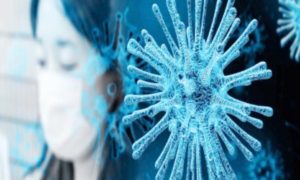NEW DELHI, Jan 30: As India completed two years since the outbreak of COVID-19, vaccines and following COVID appropriate behaviour remain the most effective weapons against the deadly virus.
 Though a number of drugs and other methods have been tried, no definitive treatment has emerged as yet. The country saw its first case of COVID-19 on January 30, 2020, when a third-year medical student from Wuhan University tested positive. She had returned home following semester holidays.
Though a number of drugs and other methods have been tried, no definitive treatment has emerged as yet. The country saw its first case of COVID-19 on January 30, 2020, when a third-year medical student from Wuhan University tested positive. She had returned home following semester holidays.
Since then, India has witnessed three waves of COVID-19, though the line of treatment has remained the same throughout.
Health Minister Mansukh Mandaviya on Saturday said irrespective of the COVID-19 variants, “Test-Track-Treat-Vaccinate and Adherence to COVID Appropriate Behaviour” continue to remain the tested strategy for COVID-19 management.
Several medical treatments were also tried to tackle COVID-19 but no widely accepted treatment has been seen till now.
Recently, at a press briefing, NITI Aayog Member (Health) Dr VK Paul expressed concern over the “overuse and misuse” of drugs.
“The use of steroids can increase the chances of Mucormycosis (black fungus). Steroids are very potent life-saving drugs but they also have side effects and they disturb the immunological protection. They disturb many biochemical pathways. So, it was a very big lesson…we were learning at that time but now we know it,” he had said.
The country tried treatments such as plasma therapy, Remdesivir, DRDO’s anti-COVID drug 2-deoxy-D-glucose (2-DG) and most recently Molnupiravir, but there has been no definitive medicine to cure COVID-19 patients.
As attempts to tackle COVID-19 and its most recent variant Omicron continue, vaccines remain the most viable option for mitigating the disease.
Prime Minister Narendra Modi underlined the importance of vaccination and the need to further accelerate the “Har Ghar Dastak” programme to achieve 100 per cent vaccination coverage. (PTI)



